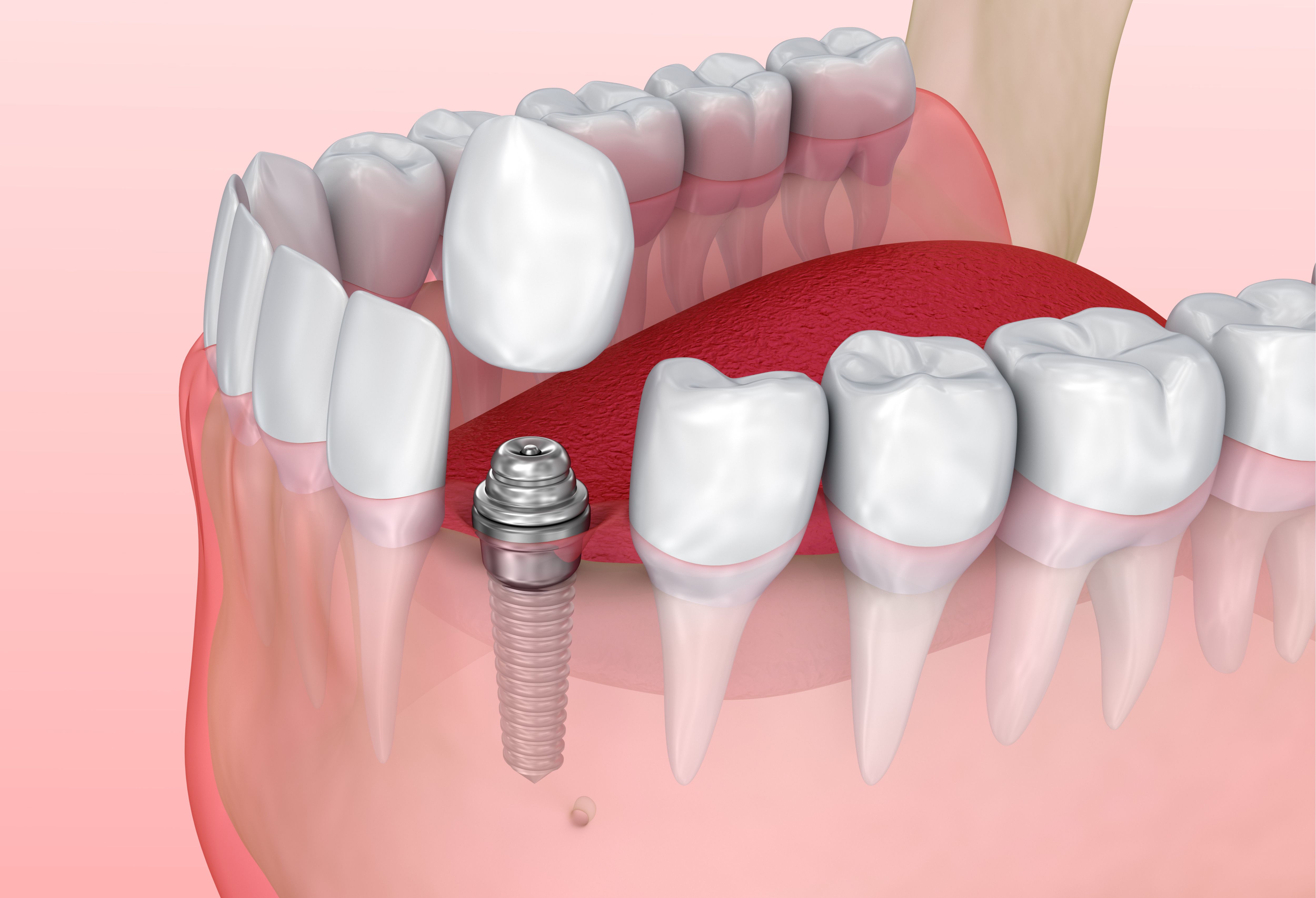Discomfort after Dental Implant Surgery
 Patients seeking long-term, reliable teeth replacement can benefit from dental implants at our Tijuana, MX practice. This treatment requires a surgical procedure in which your doctor will position the implant posts in the jawbone.
Patients seeking long-term, reliable teeth replacement can benefit from dental implants at our Tijuana, MX practice. This treatment requires a surgical procedure in which your doctor will position the implant posts in the jawbone.
Today, we discuss discomfort after dental implant surgery and explains how patients can prepare for a successful recovery.
Dental Implant Surgery: A Brief Overview
In most cases, dental implant treatment is performed in two stages: one to place the implant in the jaw, and another to attach the restoration.
During your dental implant surgery, the doctor will strategically place the implant posts into the jawbone. Following the procedure, a few months of healing are generally required before the final restoration is connected.
How Much Discomfort Should I Expect?
Because dental implant placement is a surgical procedure, some degree of discomfort should be expected. However, over-the-counter and prescription medications can help mitigate any tenderness so you remain comfortable throughout the healing process. Most patients report that recovery after dental implant surgery is similar to that of a minor extraction.
How Can I Minimize Discomfort after Dental Implant Surgery?
Following dental implant surgery, patients are provided with a comprehensive list of post-treatment guidelines. These should be followed precisely to ensure a comfortable and swift recovery.
Here are a few general recommendations:
- Keep activity to a minimum. Strenuous exercise or any activity that elevates the heart rate can cause increased post-operative bleeding, swelling, and discomfort. Therefore, we recommend that patients avoid this type of activity for the first 48 hours.
- Use cold compresses. Post-operative discomfort may be accompanied by swelling or inflammation. To reduce the risk of these side effects, apply an ice pack or cold compress to the external jaw for 20 minutes at a time.
- Take medications as directed. Following your procedure, you will likely be provided with prescription medications, including antibiotics and pain tablets. Dr. Serecero may also recommend over-the-counter medications, such as ibuprofen, naproxen, or acetaminophen. These medications should be taken exactly as directed by your surgeon.
- Keep the surgical area clean. The surgical site must be kept clean to heal properly. For the first couple of days, gently rinse your mouth with a warm saltwater solution. Begin brushing the surgical site gently once cleared by your doctor. You can also use an antibacterial mouthwash to keep harmful microbes at bay.
- Eat a soft food diet. Hard, crunchy, or sticky foods can put pressure on the surgical site and cause more discomfort. Patients who have undergone dental implant surgery should eat softer, cooler foods for the first couple of days. This includes yogurt, pasta, applesauce, pudding, smoothies, and more. As your comfort level improves, you can graduate up to solid foods.
- Report any complications immediately. If you notice any signs of infection, such as fever or drainage, contact your surgeon right away for further instruction. These complications can typically be addressed with antibiotics.
Contact Our Practice Today
If you are considering dental implant surgery, or if you have already undergone the procedure, it is important to know what to expect after treatment. To learn more, schedule a consultation at our practice. Call our office or contact us online anytime.




